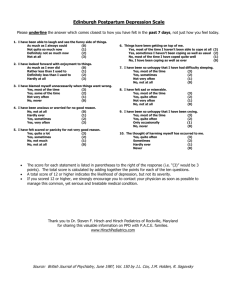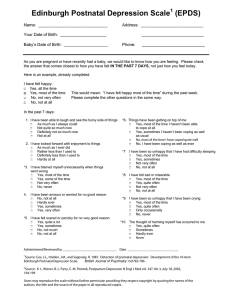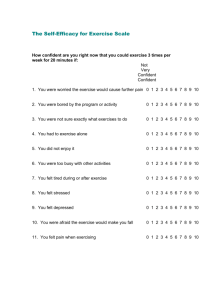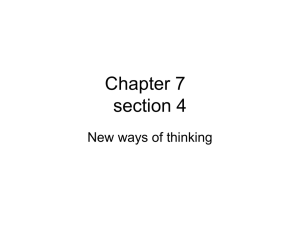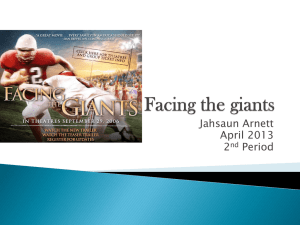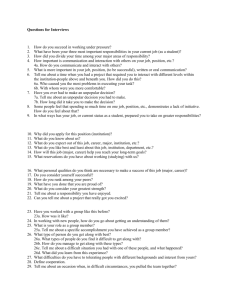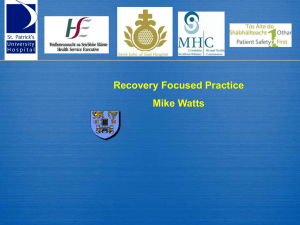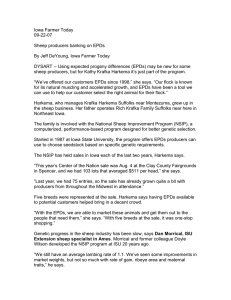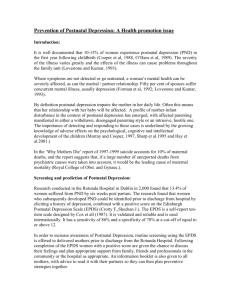Edinburgh Postnatal Depression Scale (EPDS)
advertisement
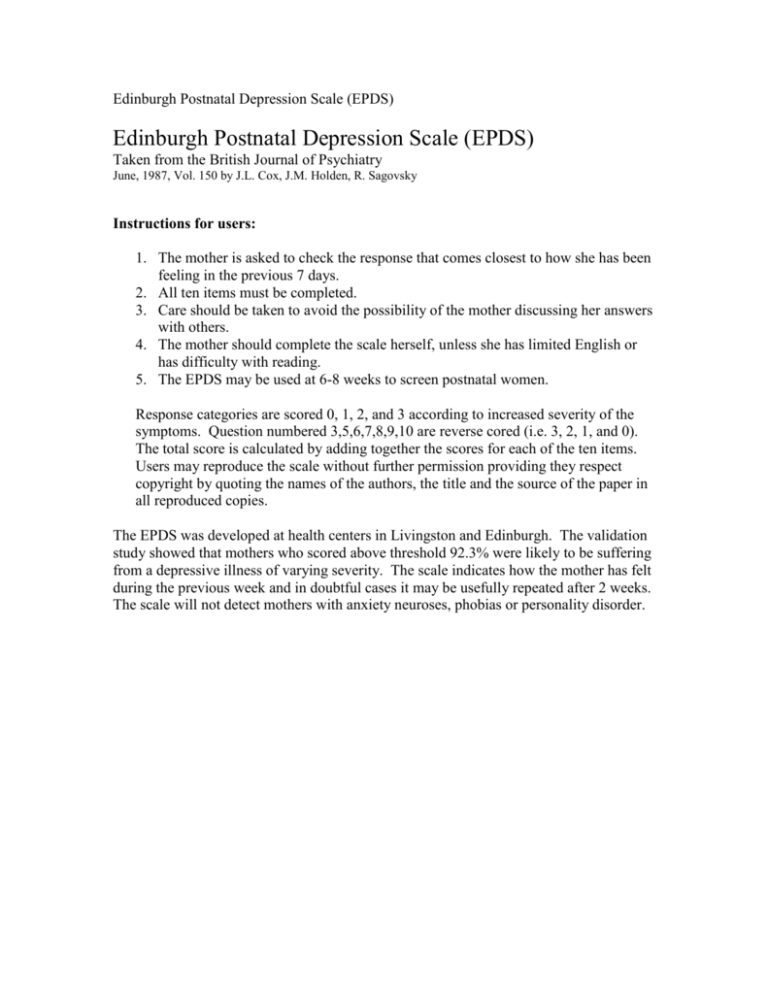
Edinburgh Postnatal Depression Scale (EPDS) Edinburgh Postnatal Depression Scale (EPDS) Taken from the British Journal of Psychiatry June, 1987, Vol. 150 by J.L. Cox, J.M. Holden, R. Sagovsky Instructions for users: 1. The mother is asked to check the response that comes closest to how she has been feeling in the previous 7 days. 2. All ten items must be completed. 3. Care should be taken to avoid the possibility of the mother discussing her answers with others. 4. The mother should complete the scale herself, unless she has limited English or has difficulty with reading. 5. The EPDS may be used at 6-8 weeks to screen postnatal women. Response categories are scored 0, 1, 2, and 3 according to increased severity of the symptoms. Question numbered 3,5,6,7,8,9,10 are reverse cored (i.e. 3, 2, 1, and 0). The total score is calculated by adding together the scores for each of the ten items. Users may reproduce the scale without further permission providing they respect copyright by quoting the names of the authors, the title and the source of the paper in all reproduced copies. The EPDS was developed at health centers in Livingston and Edinburgh. The validation study showed that mothers who scored above threshold 92.3% were likely to be suffering from a depressive illness of varying severity. The scale indicates how the mother has felt during the previous week and in doubtful cases it may be usefully repeated after 2 weeks. The scale will not detect mothers with anxiety neuroses, phobias or personality disorder. Name: _______________________________ Address: ___________________________________________________ Baby's Age: __________________ As you have recently had a baby, we would like to know how you are feeling. Please mark the answer which comes closest to how your have felt in the past 7 days, not just how you feel today. Here is an example, already completed: I have felt happy: __ Yes, all the time _X_Yes, most of the time __No, not very often __No, not at all Since the second choice is checked, this would mean, “I have felt happy most of the time during the past week”. Please complete the following questions in the same way. 1. I have been able to laugh and see the funny side of things. ___ As much as I always could ___ Not quite so much now ___ Definitely not so much now ___ Not at all 2. I have looked forward with enjoyment to things. ___ As much as I ever did ___ Rather less than I used to ___ Definitely less than I used to ___ Hardly at all 3. I have blamed myself unnecessarily when things went wrong. ___ Yes, most of the time ___ Yes, some of the time ___ Not very often ___ No, never 4. I have been anxious or worried for no good reason. ___ No, not at all ___ Hardly ever ___ Yes, sometimes ___ Yes, very often 5. I have felt scared or panicky for not very good reason. ___ Yes, quite a lot ___ Yes, sometimes ___ No, not much ___ No, not at all 6. Things have been getting on top of me. ___ Yes, most of the time I haven't been able to cope at all ___ Yes, sometimes I haven't been coping as well as usual ___ No, most of the time I have coped quite well ___ No, I have been coping as well as ever 7. I have been so unhappy that I have had difficulty sleeping. ___ Yes, most of the time ___ Yes, sometimes ___ Not very often ___ No, not at all 8. I have felt sad or miserable. ___ Yes, most of the time ___ Yes, quite often ___ Not very often ___ No, not at all 9. I have been so unhappy that I have been crying. ___ Yes, most of the time ___ Yes, quite often ___ Only occasionally ___ No, never 10. The thought of harming myself has occurred to me. ___ Yes, quite often ___ Sometimes ___ Hardly ever ___ Never
